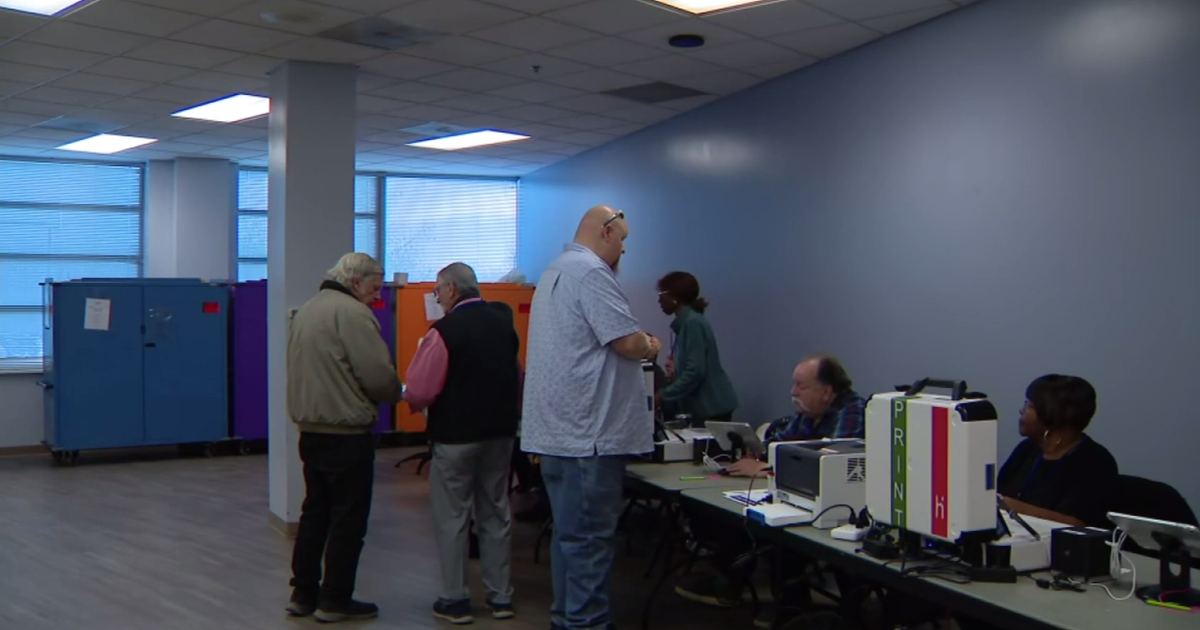How companies in the U.S. should prepare for the coronavirus
The Centers for Disease Control and Prevention this week called on Americans to start preparing for a potential coronavirus outbreak in the U.S., raising questions about what measures employers large and small may need to deploy to protect their workers while staying open for business.
Americans should expect quarantines and ready themselves for a "new normal" over the next several weeks, CBS News contributor Dr. David Agus told CBSN Thursday, warning that "our way of life will change."
The CDC on its website outlines steps employers can take to help curb the spread of the virus. Yet some of these recommendations — like restricting employee travel — conflict with the demands of conducting business both domestically and abroad. Others are at odds with the often-cutthroat corporate culture in the U.S. The federal agency's top recommendation to companies? Work from home.
"Actively encourage sick employees to stay home," the CDC advised. Dr. Agus echoed that point of view and also took it one step further, saying companies should be planning for their whole staffs to work remotely.
- Latest updates on coronavirus from CBS News
- Coronavirus quarantines in U.S. appear inevitable, doctor says
- Wall Street warning investors of coronavirus crash
"There are going to be areas of quarantine in the U.S., and workflow is going to be dramatically changed. So the great companies of the world will start policies for employees to work from home," he told CBS MoneyWatch.
"You then have to think about how they will work from home, and questions like, 'How do you deal with supply chains? Do you arrange for equipment for employees working from home?' This is a wake up call for companies," he added.
Such guidance could usher in a mass work-from-home experiment akin to those taking place in China and other countries where coronavirus outbreaks have occurred.
"Not working for an indefinite amount of time is unsustainable for individuals, businesses and the national economy. Providing an opportunity for efficient work-from-home alleviates the damage caused by the pandemic," said Alex Konanykhin, co-founder and CEO of TransparentBusiness, a digital platform that help companies manage remote workers.
The virus, which causes the coronavirus disease, officially called COVID-19, was first detected in Wuhan City in Hubei province in China late last year. There are currently 60 coronavirus cases in the U.S., a number that public health officials expect to grow — soon.
Experts warn it could spread particularly fast in cities like New York, where residents rely heavily on public transportation to commute to work. Mass transit shutdowns, or at the very least a limit on the number of passengers per subway car, for example, could be on the horizon.
"I take the metro here in D.C. every day and it's like a sardine can. That's probably going to be something we have to stop because if you are in close contact, sharing all sorts of surfaces, it's probably a great opportunity for transmission," said Christopher Mores, global health professor at the Milken Institute School of Public Health at George Washington University.
When should employees work from home?
Public health officials have repeatedly emphasized the importance of what the CDC has referred to as "social distancing" to mitigate person-to-person transmission of the coronavirus. Experts say companies will need to be especially stringent in telling sick employees to stay home starting immediately. But enforcing such a rule, even for workers that can perform their job functions remotely, might not be as easy as it seems.
"The U.S. work culture is such that at some companies you go to work even if you are sick. It's either the expectation or a point of pride, and that kind of organizational attitude can make it difficult," said Danielle Ompad, an associate professor of epidemiology at the New York University School of Global Public Health.
"If employees have symptoms, encouraging them to stay home and not penalizing them in some way is the biggest thing a company can do," she added.
For many workers, of course, interacting with customers is an essential part of the job, such as in the restaurant business. And employees could be vulnerable physically — and financially — if they aren't eligible for paid sick leave.
"Too many people go to work when they are sick because they don't have paid leave, and it becomes a public health hazard," Olga Jonas, senior fellow at Harvard Global Health Institute, told CBS MoneyWatch.
"Some workers also get fired for calling in sick, so there's nothing incentivizing them to stay home without sick leave," she added.
Ompad reiterated the importance of companies not penalizing workers for calling in sick, especially during a viral outbreak: "Don't put people in a position where they are worried about their paycheck or income, because that may drive people to go out when they are sick, which won't be good for them or the community."
Even employees who seem healthy should consider staying home given that individuals with the virus may not display symptoms immediately, or ever, experts said. In California this week, authorities reported that a woman with no known exposure to someone with COVID-19 had tested positive for the illness, stoking fears that more people could become infected through what health experts call "community spread."
"If this kind of cryptic, community transmission continues to propagate, we will certainly see a whole bunch of approaches to try to break transmission," Mores said.
Columbia University epidemiologist Dr. Stephen Morse suggests policies for companies that include staggering work hours, implementing generous sick leave policies and only requiring that essential personnel be physically present.
"Offices and cubicles are not conducive to staying healthy, and I've talked to companies who are seriously thinking about having their employees stay home," he said.
Travel restrictions and 14-day quarantines
Multinational companies from banks to technology firms are banning non-essential employee travel to those countries where outbreaks have occurred, including China, Italy and South Korea. They are also requiring that employees who've already traveled to those nations, or been in close contact with someone who has, self-quarantine for a period of 14 days.
Government-mandated travel restrictions are also impeding some workers from attending industry events and conferences. Ravin Gandhi, founder and CEO of GMM Nonstick Coatings, a provider of coating products to cookware and appliance makers, is concerned that some of the company's China-based employees will miss an upcoming housewares show in Chicago.
"We have a lot of tech service people, chemists and meetings with our American-based clients, and none of these people — who are the must crucial — can come," Gandhi told CBS MoneyWatch.
So he's devised a workaround: "We have sent a few people to visit clients in other countries — Thailand, Vietnam, Indonesia — to burn off the 14-day quarantine period," Gandhi said.
His U.S.-based workforce mostly telecommutes, which, in the context of the coronavirus these days, "is an advantage."



